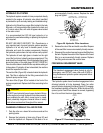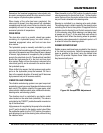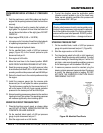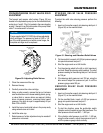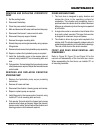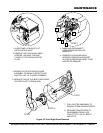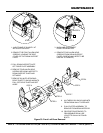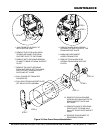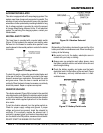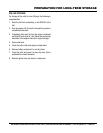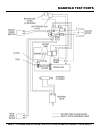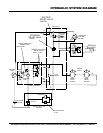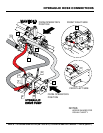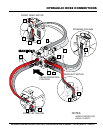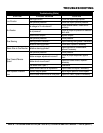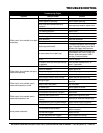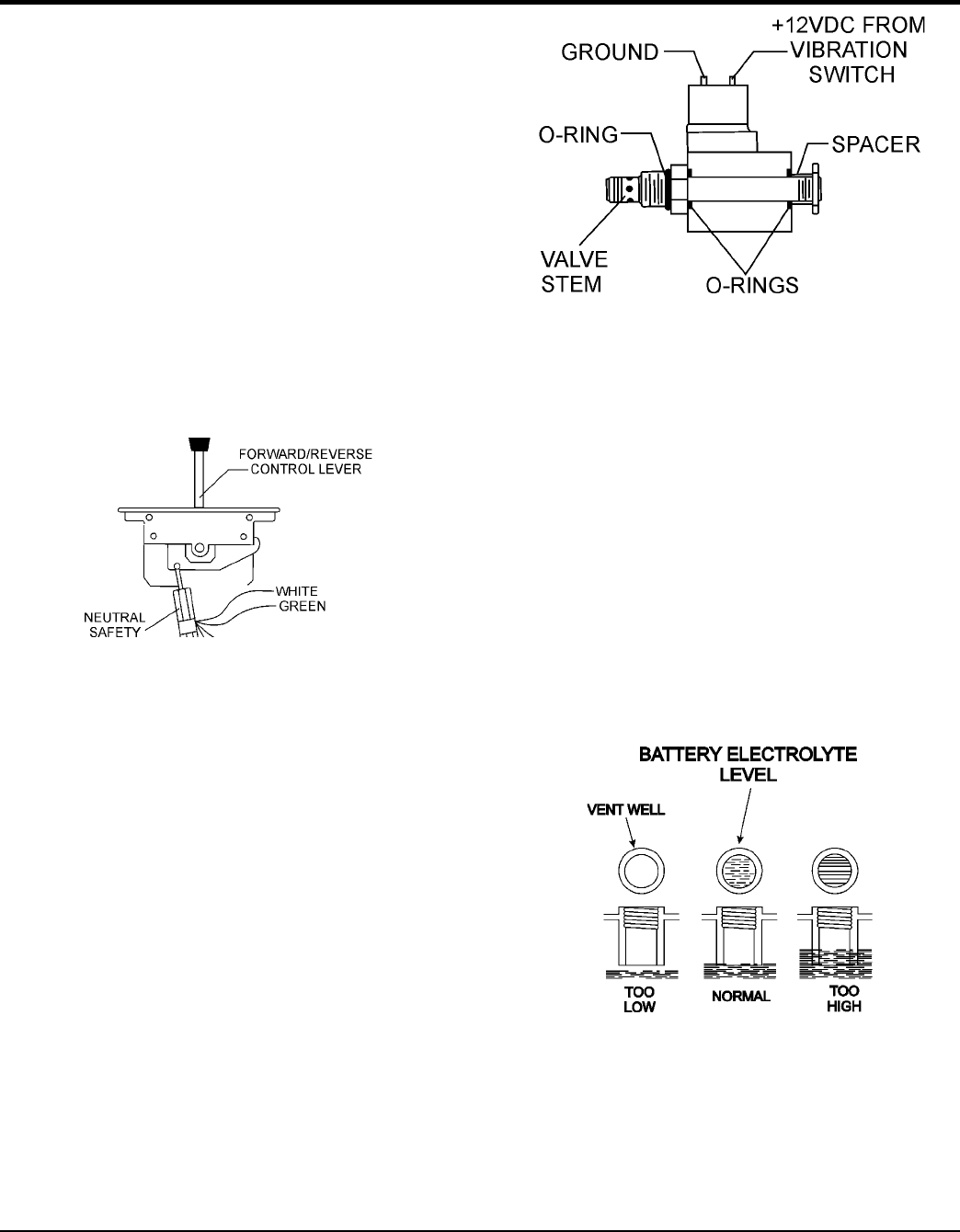
PAGE 32 — AR13HA/AR13HAR ROLLER (S/N 110301 & UP) • OPERATION AND PARTS MANUAL — REV. #0 (06/22/11)
MAINTENANCE
ALTERNATOR/REGULATOR
This roller is equipped with a 20-amp charging system. This
system uses three charge coils connected in parallel. The
windings of each coil are wound with heavy-duty insulated
wire and are further protected by insulating material for long
life. A voltage regulator is provided to control the amount
of charge voltage being delivered to the 12 volt electrical
system. For servicing this charging system, contact your
Honda dealer.
NEUTRAL SAFETY SWITCH
The travel lever is provided with a neutral safety switch
(Figure 35) that prevents the engine from starting when
the lever is in the forward or reverse drive position. Lever
must be placed in the neutral position in order for the starter
to function.
Figure 35. Safety Switch
To check this switch, remove the panel located below and
to the rear of the floor. This switch is mounted to the lower
forward/ reverse lever mechanism. Disconnect the white
and green wires. Place the lever in neutral and test for
continuity. Place the lever in forward or reverse; no continuity
should be present. Repair or replace as required.
VIBRATOR SOLENOID
The vibrator solenoid (Figure 36) is located in the manifold
valve block and is controlled by the vibration switch located
on top of the travel lever. This solenoid controls the vibration
control valve which supplies hydraulic oil to the vibration
drive motor.
To test the vibration solenoid, turn the ignition switch on.
Check for proper supply voltage and ground. If proper
voltage and ground are present, check the solenoid for
continuity. If no continuity, replace the solenoid coil. If
continuity is present, place your hand on the solenoid and
turn the switch to the ON position; movement should be felt.
DO NOT START THE ENGINE FOR THIS TEST.
Figure 36. Vibration Solenoid
BATTERY
Mishandling of the battery shortens the service life of the
battery and adds to maintenance cost. When handling the
battery do the following:
Be careful not to let the battery electrolyte come in
contact with your body or clothing.
Always wear eye protection and rubber gloves, since
the battery contains sulfuric acid which burns skin and
eats through clothing.
Check the battery regularly and make sure that each
electrolyte level is to the bottom of the vent well (Figure
42). If necessary, add only distilled water in a well-
ventilated area.
Figure 37. Battery Fluid Levels



